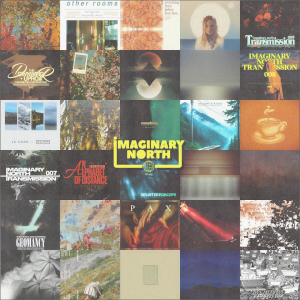Behind an unabashedly bass-heavy backdrop, Lovetrip astonishingly and consistently maintains a clear palette of beats with a perceptible groove. Having listened to three of his albums on the Móatún 7 label, my curiosity has only increased.

A journey of chilled electronica at its finest
Oli Love is actually Lovetrip, a UK-based electronic musician that makes incredibly distinctive, ecstatic music. You’ll experience bass-heavy grooves, unreserved beats, and a gentle atmosphere of melodic rhythms throughout his music. Árni Grétar’s Móatún 7 label (see profile here) became home to Lovetrip’s music, and its first release was on March 29, 2021, cataloged as release #77 for the label as MOA77, with an A side shared with a B side from an Icelandic electronic music artist, Bobbz N Gvarz, featuring Luffi.
I was immediately enamored with Lovetrip’s music the moment I heard it. The atmospheric electronica was so thorough that it had me spellbound. Behind an unabashedly bass-heavy backdrop, he astonishingly and consistently maintains a clear palette of beats with a perceptible groove. Having listened to three of his albums on the Móatún 7 label, my curiosity has only increased. Particularly with the complete Synaesthesia album.
“Here is another Lovetrip journey of chilled electronica at its finest. Soft patterns of mellow melodic beats which emits a rhythmic bassline.” ~ Bandcamp A.J.
Lovetrip keeps up a distinctive sound that is essential to the Móatún 7 lineup. It is impossible to describe the entire Little Silver Box CD other than as a masterwork of ambient electronica. To fully understand the album’s purportedly pleasurable effects, you must listen to the tunes.
“”Carbonate” is crafted by a mid-tempo range of pleasant basslines which compels and captivates. “Other Things” evolves into an experience through chill territory with slithers of tranquil groove. This album, as a whole, is like an opiate-induced state of pleasure and electronic bliss that slowly seeps into your brain…I would say the music is indeed a love trip of pure ecstasy in sound.” ~ Igloo Magazine A.J.
Then just when I thought it couldn’t get any better and that I had already heard his pinnacle in sound, Shift Patterns was posted on the Facebook feed through the Móatún 7. Every single track does not disappoint.
“Lovetrip is constantly one step ahead of the curve when it comes to sound design, rhythm, and composition. He has mastered a unique approach to crafting this electronic masterpiece, layering rich and crispy textures on top of an unapologetic bassline.” ~Bandcamp A.J.
Anne Jackson / Igloo :: Where does the consistency of the beats, the rhythmic sequences and mellow patterns of groove originate? Who or what has inspired that signature sound you have mastered in your creation of electronic music?
Oli Love :: My sound comes from what I like to hear. I record and sample sounds around me all the time, then start playing with each sound and building it into a track. I haven’t set out to create a signature sound; that has just happened naturally and comes from hours spent in the studio. What I produce has developed and changed over the years, as have my tastes and what I listen to. My influences vary, but those worth mentioning include Aphex Twin, Boards of Canada, Kraftwerk, Company Flow, Air, Daft Punk, Metro Area, James Holden, Future Sound of London, the KLF, 808 State, early Pink Floyd, Eat Static, The Shamen, Andrew Weatherall, DJ Shadow, Coldcut, Portishead, Massive Attack, J Dilla, Mathew Jonson, Mr. G, Radiohead, Stereo Lab, and Drexciya.
When did you first pick up gear to create music? Share with us what that experience was like?
I started young, as there were a few instruments in the house, such as a piano, guitars, and a very old Teisco Teischord C organ, plus an old Grundig reel-to-reel. Later, I got a Yamaha drum machine and started playing the drums in bands (early teens) in the late 80s and early 90s. I’m not musically trained at all. Apart from a couple of unsuccessful piano lessons, I would use said instruments to make different sounds; the weirder, the better. I loved playing with sound, and that has always stuck with me. I bought a Roland JS30 sampling workstation and got hold of an Atari 520 and a cracked copy of Cubase (originally making instrumental hip-hop and electro, because that’s what I was into at the time). I went on to college to study sound engineering and continued to produce electronic and tech house music for many years. I moved to London and was working at Turnkey (a music shop), then went into vinyl distribution (Amato and Intergroove), so I was surrounded by electronic music and spent a lot of time in nightclubs. Around this time, I was producing with my friend Aaron Jones as Departure. Our main aim was to play in the clubs we went to with the DJs we idolized, and it did happen once or twice.
How did you first meet the preeminent record label boss Árni Grétar of Móatún 7? Share with us how you came to be found on the Móatún 7 label?
A few years ago, I lost my job and had some time off. I had pretty much been on a very long hiatus from music after getting married, traveling, relocating, and starting a family. This time off gave me the opportunity to rekindle my passion for producing, starting again with a copy of Ableton and a laptop lent from a very close friend and awesome fellow producer, Simon Tappenden, who is another friend. Also living in Bridport is James (Rekab) Baker, a local legend, DJ, and producer. James had already contacted Árni from Móatún 7 and had a few releases on the label. After chatting as we often do, I mentioned that he knew I was producing again. I played him a couple of things I had finished and was pleased with, and then he asked if he could send them to his mate in Iceland (Árni). Next thing I knew, I got an email from the man himself asking to put them out.
Who are your earliest memories of artists who have made an impression on you in electronic music?
Early influences in electronic music came more from the soundtracks of the sci-fi films I was watching, such as Lalo Schifrin, John Carpenter, and Vangelis. Also, rave culture was all around me growing up in rural England in the early 90s. When I went to free parties and raves in my teens, my eyes were opened to a whole new world of sound. We shared mix tapes from DJs and sought out records we heard, which was a lot harder in those days. We traveled miles to go to clubs to see DJs.
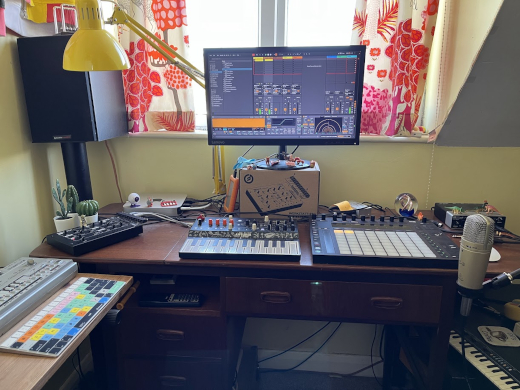
Who do you like to listen to outside of electronic music?
I have an eclectic taste in music, but the stereo in our house is taken over, and I rarely play stuff I choose, such as early hip-hop, early dance tunes, indie, and pop, and I tend to listen to older stuff rather than new. I don’t have the disposable income to buy tunes like I used to, so maybe I’m a bit out of touch.
I understand that you are a husband, proud father of three daughters, with a job and can find time for studio work. That is quite impressive. Speaking of your daughters, am I correct when I say that I can hear recordings of their voices in your music?
I love to use random sounds, textures, and samples from nature, especially. I have a portable recorder that I carry everywhere and grab stuff for future use. Yes, you are correct, my daughters feature a lot, and my small studio is next to their bedrooms, where I often catch them being quite vocal. I turn them into pads, percussion, and background noise.
What is the current kit list of gear you use?
Roland TB303, Moog werkstatt, Arturia micro freak, Ableton Live, Tascam d50 recorder, Ableton Push2, various older Casio, Korg keys plus T.c electronics fx and a whole load of percussion and homemade instruments.
Can you share with us any new projects and/or goals that are on your mind for the upcoming future and what can you foresee with Lovetrip within the next 5 years?
Currently, I am compiling my fourth album, plus a couple of remixes are on the way. One is for Rekab’s album and a remix for the Vast Profound, both on Fourier Transform, plus I am currently involved with Tropychs, along with Simon Tappenden and Joie Hinton (ex Ozric Tentacles, Eat Static). I’m providing the 303, and I intend to keep making music and hope to branch out. Móatún 7 is an amazing platform, as Árni just trust what I do. It’s amazing to essentially make tunes for my own ears and have a great response from listeners and my contemporaries. The scene I have stumbled into is very supportive. I don’t set out to make music for clubs or DJs anymore. In fact, I don’t even think about that, but I prefer to do what I like. I find it amazingly awesome that others get it and are into it too. Árni has given me the confidence to trust in myself and my sound. I just hope I can keep doing this. 5 years? I have no idea what I’m doing next week! I write every chance I get, and I’m lucky I get to spend hours crafting. I have a very understanding family that puts up with my noise.
I want to thank you for the opportunity to provide your followers with insights into the realm of Lovetrip. We are eagerly anticipating what the future holds for your music, and we truly value the time you have spent with Igloo Magazine.
Shift Patterns is available on Móatún 7. [Bandcamp]






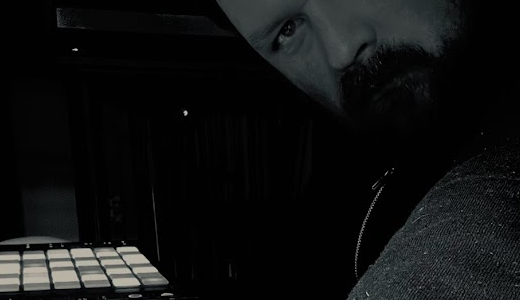
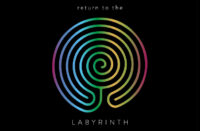



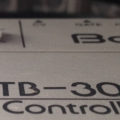

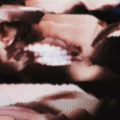
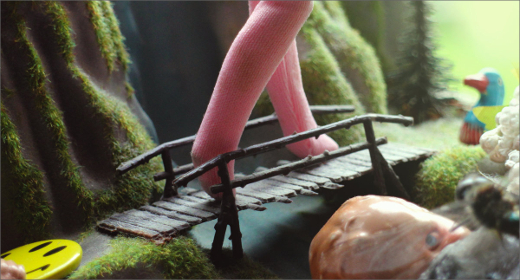


![Hasbeen :: Bunker Symphonies II (Clean Error) — [concise]](https://igloomag.com/wp/wp-content/uploads/2025/04/hasbeen-bunker-symphonies-ii_feat-75x75.jpg)
![Extrawelt :: AE-13 (Adepta Editions) — [concise]](https://igloomag.com/wp/wp-content/uploads/2025/04/extrawelt-ae-13_v_feat-75x75.jpg)
![Beyond the Black Hole :: Protonic Flux EP (Nebleena) — [concise]](https://igloomag.com/wp/wp-content/uploads/2025/04/beyond-the-black-hole-protonic-flux_feat-75x75.jpg)
![H. Ruine, Mikhail Kireev :: Imagined / Awakenings (Mestnost) — [concise]](https://igloomag.com/wp/wp-content/uploads/2025/04/h-ruine-mikhail-kireev-imagined-awakenings_feat2-75x75.jpg)


![Squaric :: 808 [Remixes] (Diffuse Reality) — [concise]](https://igloomag.com/wp/wp-content/uploads/2025/04/squaric-808-remixes_feat-75x75.jpg)
